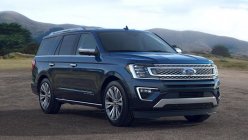Many vehicle owners live a fast-paced lifestyle that trivial details like the air in their car can hardly become a concern. In fact, a lot of people don’t even have this listed in the occasional car check and maintenance. But what a lot of people don’t know is that being concerned about the air we breathe is just as important as being concerned about the air in your car.
According to a study found in researchgate.net, people spend an average of 5.5 percent of their time inside their cars. If you have poor-quality air inside your car within that time, it may lead to or contribute to discomfort or illness.
1. The drawbacks of car air purifiers
We all know that car air purifiers do exist. In fact, we‘re sure you can name some of the most famous brands that you can see in commercials. While some of these actually work, there are those that don’t do a good job at it. Also, don’t expect that the air deodorizer that you’re using at home or in the bathroom can compete. You may end up getting disappointed.
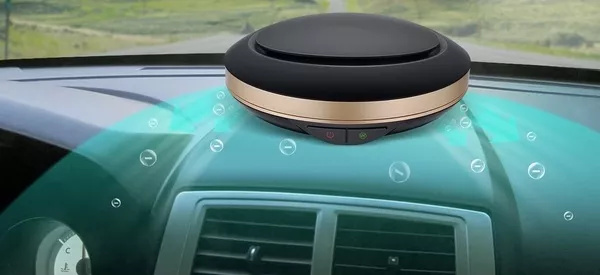
We all know that car air purifiers do exist
This is why Philkotse.com advises for you to control your expectations, even if you’re buying any of the three types of air cleaning products. Air purifiers, air fresheners, ionizers, and other deodorizing gadgets are examples. A lot of these marketed devices are actually ionizers labeled with different names.
These work differently from the mechanism in HEPA (High-Efficiency Particulate Air) filters. These HEPA filters are the ones you’ll see in commercial deodorizing products. These are usually meant for home, offices, and businesses.
In fact, the car ionizers you know can’t filter particulates from the air. Even high-end units meant for homes have gotten questionable reviews from consumers. Technically speaking, ionizers do work by doing what they were assigned to do.
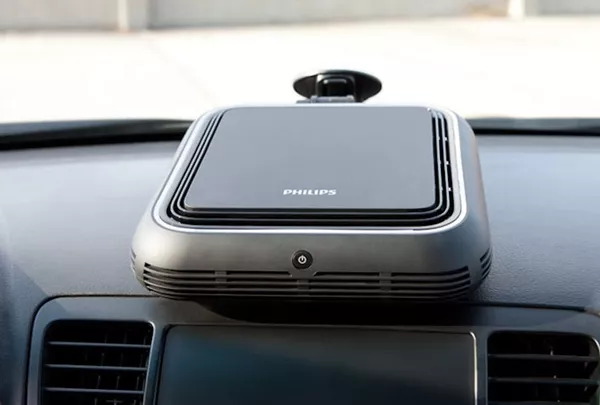
In fact, the car ionizers you know can’t filter particulates from the air
The problem is that it may not be able to live up to what you were expecting. There are also car purifiers that work by generating its own ozone. These devices are definitely more powerful than the standard marketed ionizers.
They also do a good job of lifting even odors that have long settled in your vehicle. These are usually preferred by professionals and those who have a budget to spare. So, if you're one of the two, go for this option instead.
>>> You might concern:
2. The air quality inside your car
When asked about air pollution, we connect it with environmental problems. One example of this is smog and burning non-recyclable wastes. The topic of indoor air quality usually comes next in mind.
This triggers more concern when it comes to the hotter and cooler months. This is when allergens and dust starts to settle in homes and offices. But something that very few people see is the fact that indoor pollution is also a problem in cars.
This is why there are so many car air purifiers on the market. In fact, the very same elements that you find in the outside environment can also be present inside your vehicle. This is, of course, besides the dirty air pollutants that are emitted by your car interior.
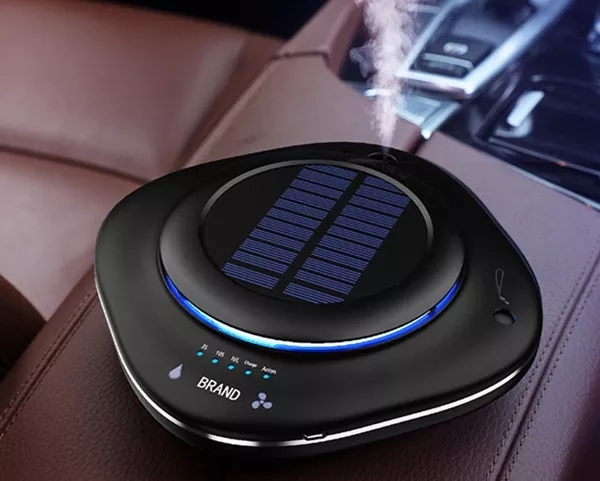
The very same elements that you find in the outside environment can also be present inside your vehicle
A good example of this is the analysis, as proven by the NIH or National Institute of Health. According to them, the aromatic hydrocarbons from your interior can cause serious ailments. Examples of these parts are brakes, seats, steering wheel, and other interior elements. Of course, you can try to roll down your car window. This, however, will only prevent pollution from outside to get inside your car.
One other problem that most car owners have to deal with is the smell of other lingering odors. This could be tobacco, spilled milk that has gone sour, pet urine, and so on. Air ionizers and purifiers will generally disappoint you. This is especially in cases where liquids may have spilled in your car. You can have a better experience by going for ozone generators and absorbents instead.
>>> Read more: 8 steps to eliminate odor from your car aircon system.
3. Different classifications of car air purifiers, filters and ionizers
Air purifiers and filters can have small to massive differences. Listed below are some of the common ones. You can usually find them in supermarkets and auto-supply stores:
- Cabin air filters – These can filter the air going into your car when you turn the ventilation, heating, and air conditioning system on. It can also filter the re-circulated air.
- Air ionizers – These types of devices usually require to be plugged into your accessory socket. They run on the principle of ionizing the pollutants in your car. Instead of catching the pollutants in some sort of filter, it makes it stick to a surface where you can’t inhale them.
- Engine air filters – These types of filters are the ones responsible for cleaning the air for combustion. Most of the type, they have absolutely nothing to do with your car’s interior air quality.
- Ozone generators – These devices are pretty self-explanatory. They are capable of generating ozone. Ozone is capable of destroying the molecular structure of bad odors and pollutants effectively.
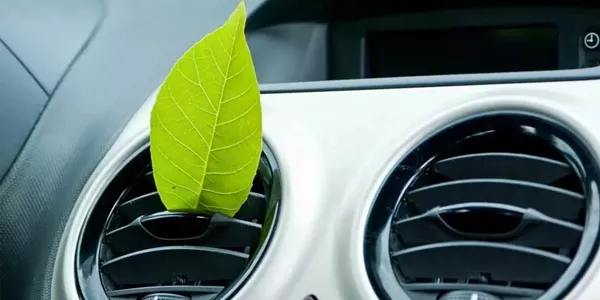
Air purifiers and filters can have small to massive differences
4. The air filters in your car
Engine air filters are cloth or paper-based filtration media used to trap debris and particles. This keeps the unnecessary elements from going into your vehicle’s intake system. Engine air filters aren’t the same as the cabin air filters inside your vehicle because engine air filters have nothing to do with the car interior’s air quality.
Your vehicle's cabin air filters play a vital part in maintaining an odor and allergen-free vehicle interior. Unfortunately, older vehicle models have unobstructed exterior vents, so fresh air can get inside the car. Newer vehicles, on the other hand, utilize cabin air filters to trap dirt and debris. You can usually find two types of cabin air filters in the market. Here they are:
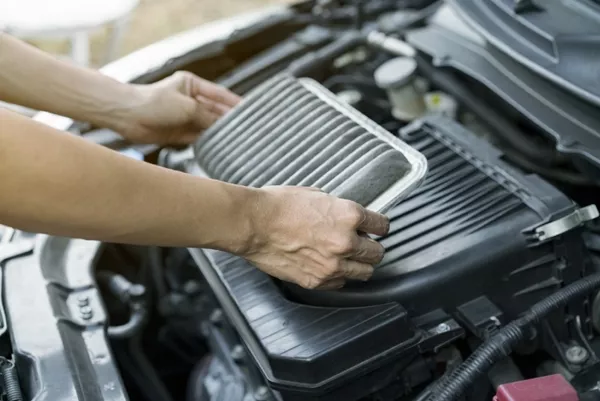
Engine air filters are cloth or paper-based filtration media used to trap debris and particles
>>> Check out: 6 common kinds of car air filter & how to choose the best one.
- HEPA cabin air filters – These types of filters make use of fine mesh that can trap both large and small odor-causing particles.
- Cabin air filters impregnated with activated carbon filtration – These filters can be bought in the market or in specialty stores if you’re lucky enough. These filters have activated carbon that can effectively eliminate bad odors.
Recent posts
- Car Aircon Cleaning Service in the Philippines: Popular shops, Price & More Dec 28, 2020
- A complete guide to the Car Aircon Parts & How they work. Mar 10, 2021
- 9 steps to identify and solve potential problems in your car aircon system Aug 17, 2022
- Cleaning the Air Filter: When and How Can I Do It? Feb 23, 2021
- 4 most common car air conditioning problems & How to fix them Aug 04, 2020


